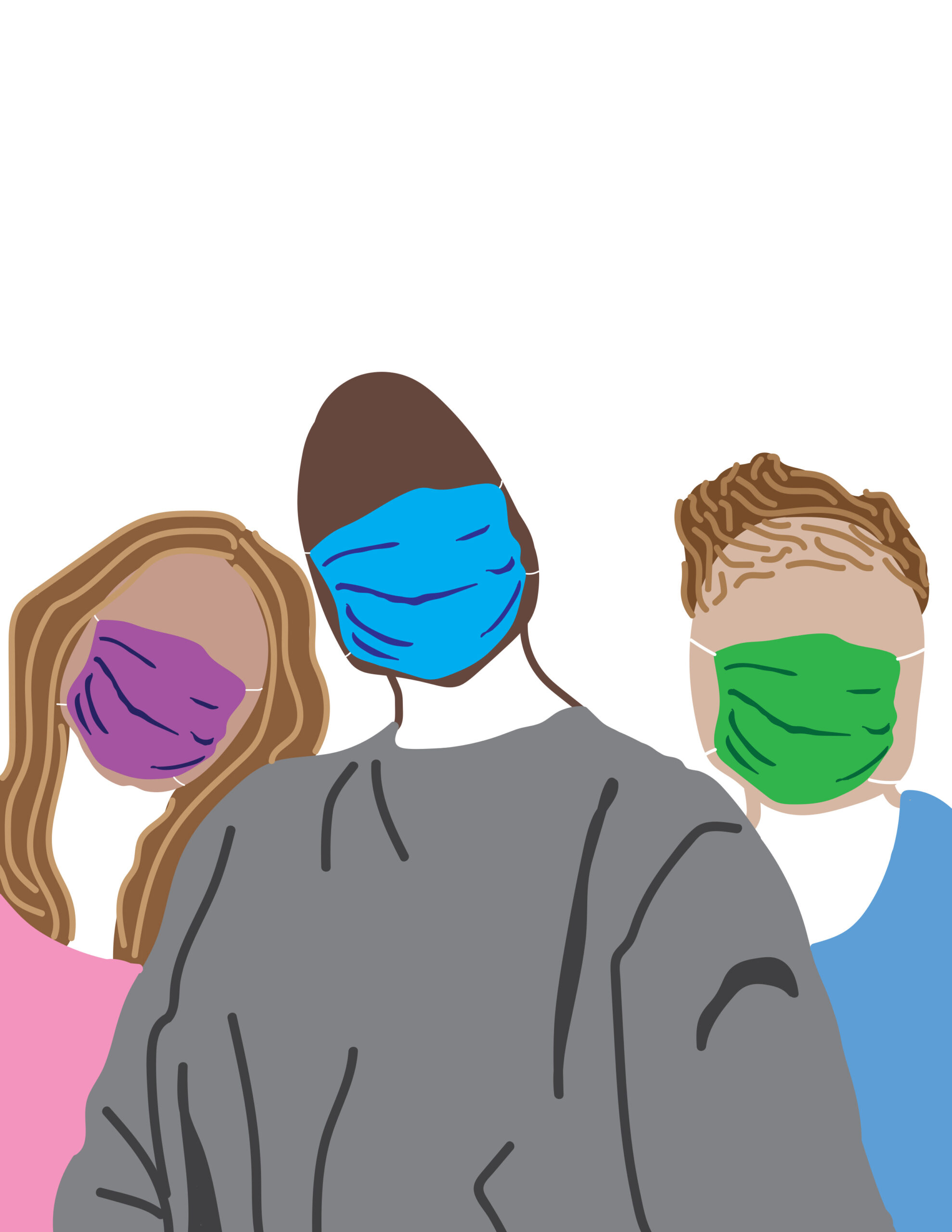
Face masks have become a symbol of the COVID-19 pandemic and a flashpoint in the culture war over the lockdown.
Uncertainty around COVID-19 has permeated since the World Health Organization (WHO) declared a public health emergency on Jan. 20. 2020.
Surgical and non-surgical face masks are pervasive among front line staff and those wary of spreading the pandemic.
But there’s also significant resistance to wearing face masks.
So how beneficial is it for non-front line workers to wear a mask?
Waterloo Region Public Health (WRPH) told Imprint in a statement that the mask is not sufficient as a prevention measure alone.
WRPH said that wearing masks might be helpful once all other precautions have been exhausted when social distancing is not possible.
“Non-medical masks may be used when you are unable to maintain physical distancing. It is a measure that can be used to help prevent you from spreading the virus to others because they help to contain your own droplets,” WRPH said in a statement.
“But a mask is not a replacement for other measures.”
Imprint reached out to Dr. Narveen Jandu, a cellular microbiologist and an assistant professor for the AHS faculty at UW for her thoughts on the debate. Dr. Jandu released a statement in a podcast with ‘Beyond the Bulletin’, regarding wearing masks.
“Because of the proximity and the fact that it is closest to your own [mouth] that means that it is greatest at capturing your own respiratory droplets from being transmitted so you’re protecting others from your own respiratory droplet. Dr. Jandu said.
“Depending on the type of mask the fit around their nose and mouth area the other person’s respiratory droplets could still enter the person wearing the mask,” Dr. Jandu said.
The WHO has released its own statement on the debate on Apr. 06, 2020, saying that wearing masks is a measure that can prevent the spread of COVID-19, however, it is not an efficient form of primary protection and should be reserved for health care workers.
“The use of a mask alone is insufficient to provide an adequate level of protection, and other measures should also be adopted…maximum compliance with hand hygiene and other Infection prevention control measures is critical to prevent human-to-human transmission of COVID-19,” according to the WHO website.
Health Canada also recommends people wear homemade non-medical masks or facial coverings when in public, and stresses that wearing a mask alone will not prevent the spread of COVID-19.
“Wearing a mask alone will not prevent the spread of COVID-19. You must consistently and strictly adhere to good hygiene and public health measures, including frequent hand washing and physical (social) distancing,” according to the Health Canada Website.
Public health officials say that people should mainly adhere to and practice public health measures such as hand hygiene and practicing social distancing. As for wearing masks, non-medical masks may be worn when physical distancing is not possible.































